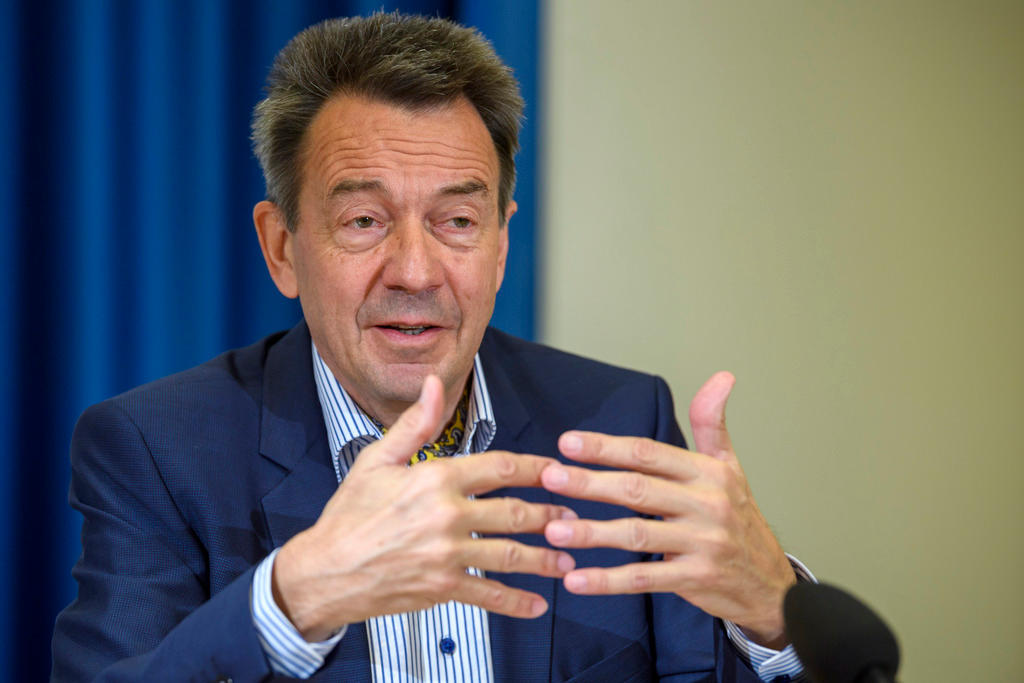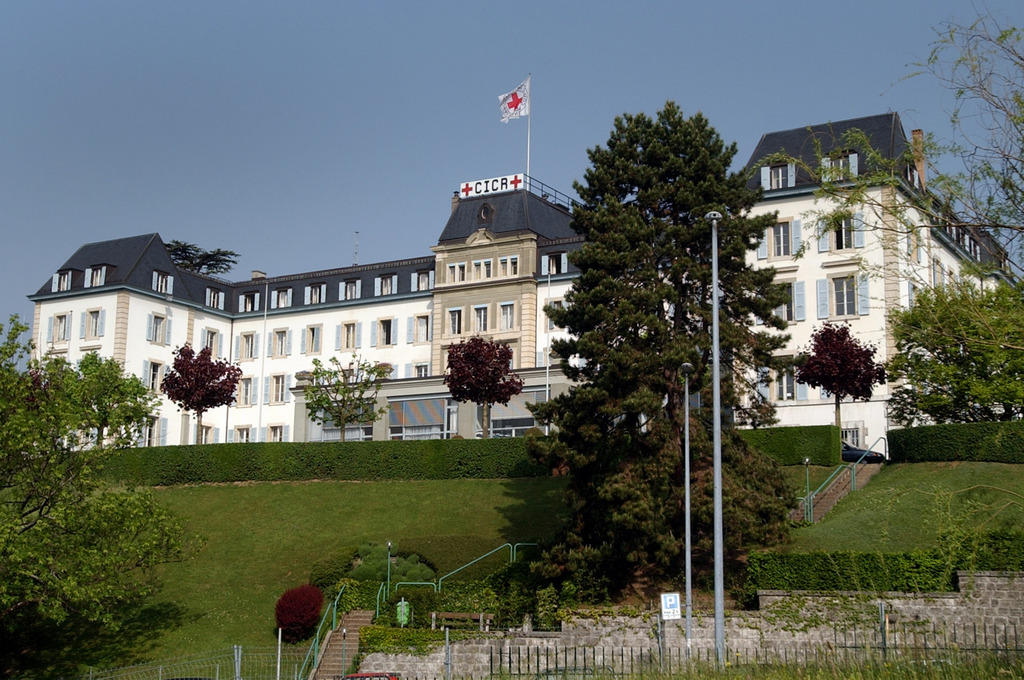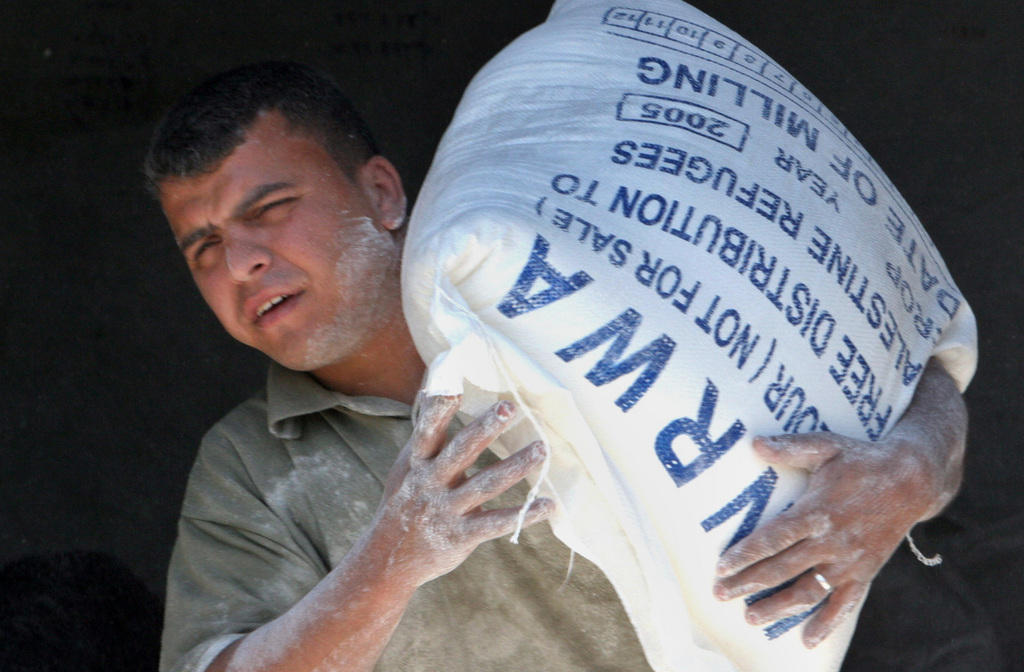ICRC responds to Cassis’ UNRWA comments

Peter Maurer, head of the Swiss-led International Committee of the Red Cross, has addressed the recent controversial Palestinian comments made by the Swiss foreign minister, Ignazio Cassis.
Cassis said last month that the United Nations Palestinian Relief and Works Agency (UNRWA) had become part of the problem by maintaining refugee camps. More work should be done to integrate refugees into other countries rather than give them hope of a return to Palestinian territories, he argued. “By supporting the UNRWA, we keep the conflict alive. It’s a perverse logic,” he said.
His stance has caused an outcry in some quarters, including some high-level representatives at the UN. The government has stressed that Swiss support for UNRWA is legitimate, but that as a donor Switzerland also has the right to contribute to the debate about UNRWA’s future.
+ Read more reactions to Cassis’s comments
Maurer told the SonntagsZeitung newspaperExternal link that he understood why politicians had concerns about humanitarian support lasting for years. But two issues must be addressed: what is the effect of humanitarian aid and why does humanitarian work become prolonged when it should by definition be short?
“The affected people have to get the help that they need, but shouldn’t become long-term dependent on this help,” he said.
Status not the issue
When asked in particular about Cassis’ comments on how some Palestinian refugees were inheriting their refugee status and expecting to return home, Maurer said that the real problem was “that no political solution has been found between Israel and the Palestinian territories and not how one should define refugee status”.
Criticism could be made that the refugee convention was not adapted to the current situation, Maurer continued, but much worse was that “wars are being carried out in such a way that there are more victims and more people are being driven out, without solutions being found for them”.
Humanitarian organisations are dealing with this, like for the Kurds and the Sunnis in Iraq. Politicians must do more to find political compromises, he said.
Private sector
In the long-ranging interview, Maurer also defended the ICRC entering into private partnerships, such as with banks and insurances. Maurer answered that the ICRC worked with states and private entities because it allowed the NGO to carry out its work. “Key is that our partners allow us to work neutrally and independently,” he said.
In any case, this is nothing new: the ICRC had been working with the private sector since 1928 and Maurer’s predecessor Jakob Kellenberger also encouraged company partnerships, Maurer pointed out.
Other forms of cooperation are necessary because today’s conflicts have forced the ICRC to change how it works – the conflicts are long-term and involve damage to important infrastructure. Private partners can help the ICRC to get its neutral and independent help to the people that need it most, Maurer said.

In compliance with the JTI standards
More: SWI swissinfo.ch certified by the Journalism Trust Initiative




You can find an overview of ongoing debates with our journalists here. Please join us!
If you want to start a conversation about a topic raised in this article or want to report factual errors, email us at english@swissinfo.ch.